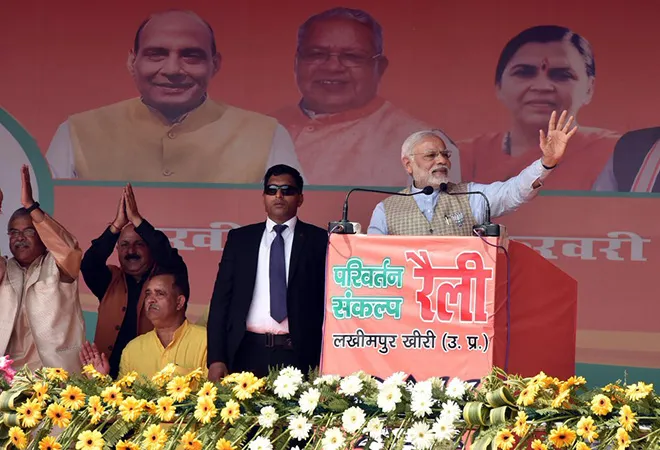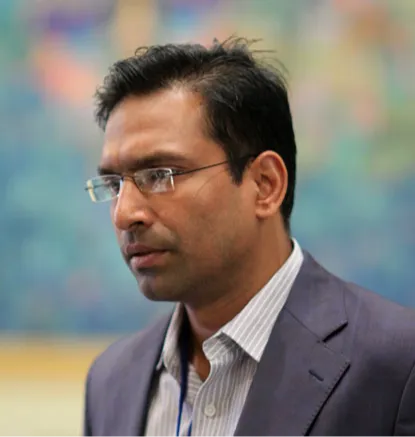-
CENTRES
Progammes & Centres
Location

Demonetisation may not have upset the black money applecart, but the move has certainly revived the debate on political funding reforms. It is well known in campaign finance literature that in democracies black money is largely a function of a weak campaign finance system and an “overdeveloped” state with its arbitrary powers over core areas of economic and administrative decision making. While politicians use threats of administrative and regulatory arbitrage on private businesses to extort donations to fill the party (and their own) coffers, a dysfunctional campaign finance system acts as an added incentive for parties to go about tapping contributions from all possible routes but mostly from illegal sources.
How does the Budget 2017-18 proposals address the core issues surrounding this disfunctionality? The 2017 Budget has done well to devote an entire section to push political funding reforms. The most noteworthy announcement is the reduction of cash donations from the current Rs 20,000 to Rs 2000 per person. This proposal is in sync with the policy shift towards cashless economy. While this is welcome, it still leaves loopholes for possible misuse. Even at the cost of multiplying the number of fictitious donors, parties would still opt for this route. Thus, anonymous donations, mostly comprising unaccounted and tainted money, will remain dominant in election funding.
Read Also | < style="color: #960f0f">Union Budget: A good beginning to cleanse political funding
Where the government has done really well is to tighten the noose on books of account. By linking tax exemption to timely compliance of Income Tax provisions by political parties, the finance bill has finally cracked the whip on one of the least implemented provisions in the I-T Act. The government now intends to make it mandatory for parties to file tax returns by December every year. This was something that the Election Commission (ECI) has been pressing for years. A mandatory deadline would certainly bring political parties under the scrutiny of tax officials and ECI. The existing I-T Act has no strict deadline and penal provisions to force parties to submit their accounts and file I-T returns within the specified time. No wonder, out of 51 regional parties, an astonishing 45 parties did not submit their donation statements in 2015.
Yet, the most promising proposal is the idea of electoral bond. While the bond scheme may not be a substitute to the public funding option, it greatly expands the space for clean funding. Potential donors can now buy bonds from the Central Bank and donate the same to a political party. Significantly, bonds have to be purchased by cashless mode via cheque or digital platforms. By implication, this would discourage shady fund raising techniques.
While one is yet to see the exact fine print of the new scheme, its broad outline indicates the move would spur political start-ups, popular parties and charismatic leaders to tap this fundraising opportunity. Arguably, Barack Obama had used a similar platform to raise a huge sum of money to launch his Presidential campaign in 2008.
Read Also | < style="color: #960f0f">Will Modi utilise demonetisation to clean up corrupt political funding?
A major shortcoming of the electoral bond is its anonymity clause. Even while the scheme is far superior to the anonymous cash donation under Section 36 of the Representation of the People Act, as identities of anonymous donors are maintained in the form of cheques and digital transactions, it hardly advances the cause of disclosure and transparency. The new proposal is akin to the problems afflicting the existing electoral trusts. An imaginative adoption of the German model of clean corporate donation, first initiated by the Tata Groups in 1996, and soon followed by 14 more corporate entities, electoral trusts, institutionalised in 2013, too suffers from lack of disclosure norms and transparency in donations. While corporate donors can make contribution to different political parties through their trusts and avail tax benefits, the law does not expect them to submit their donation details.
Thus, disclosure and transparency; twin pillars of a strong campaign finance system are largely amiss in the budget proposal. Liberal democracies that have made visible progress in reducing the role of unaccounted money in democratic processes have largely achieved such milestones through a combination of reforms but mostly through strong disclosure norms and regulatory mechanisms. The most fundamental reform in cleaning up murkier campaign finance is by removing the veils of secrecy in both donations and expenditure. Despite its good intention and courageous pitch, the budget proposal misses the most critical element governing the success of any campaign finance reforms.
This commentary was originally published in DNAThe views expressed above belong to the author(s). ORF research and analyses now available on Telegram! Click here to access our curated content — blogs, longforms and interviews.

Niranjan Sahoo, PhD, is a Senior Fellow with ORF’s Governance and Politics Initiative. With years of expertise in governance and public policy, he now anchors ...
Read More +